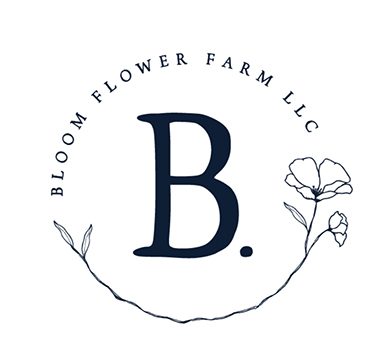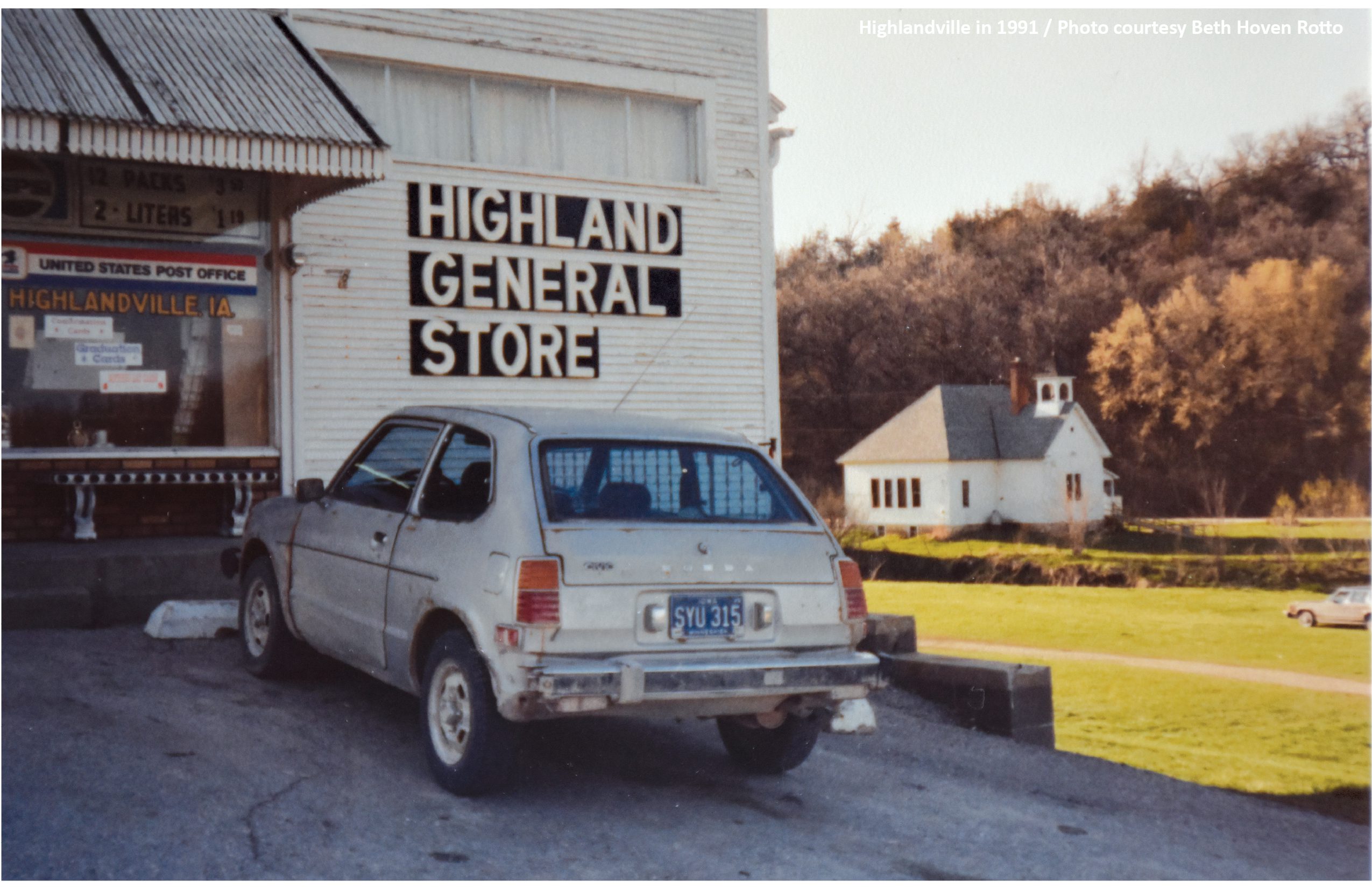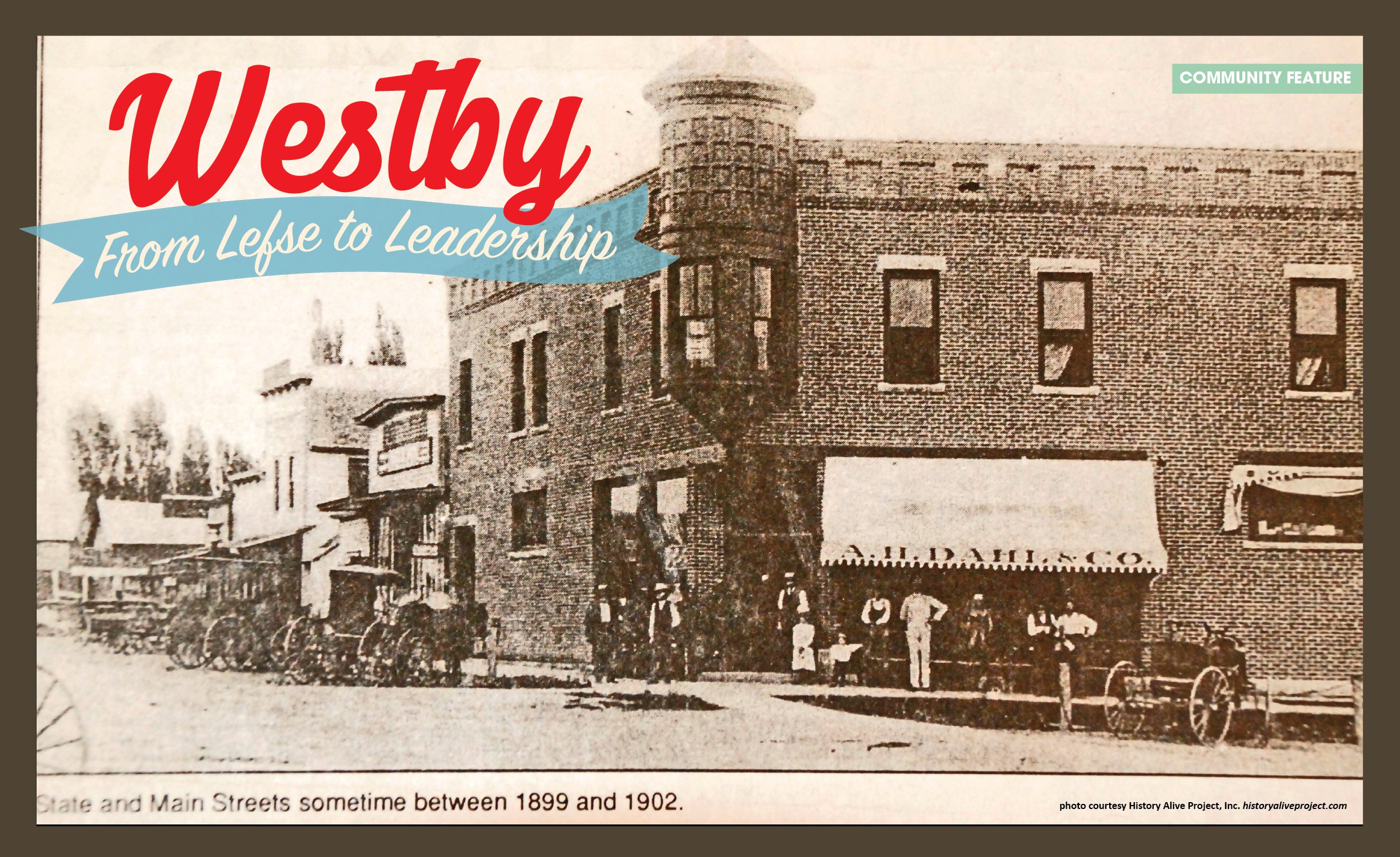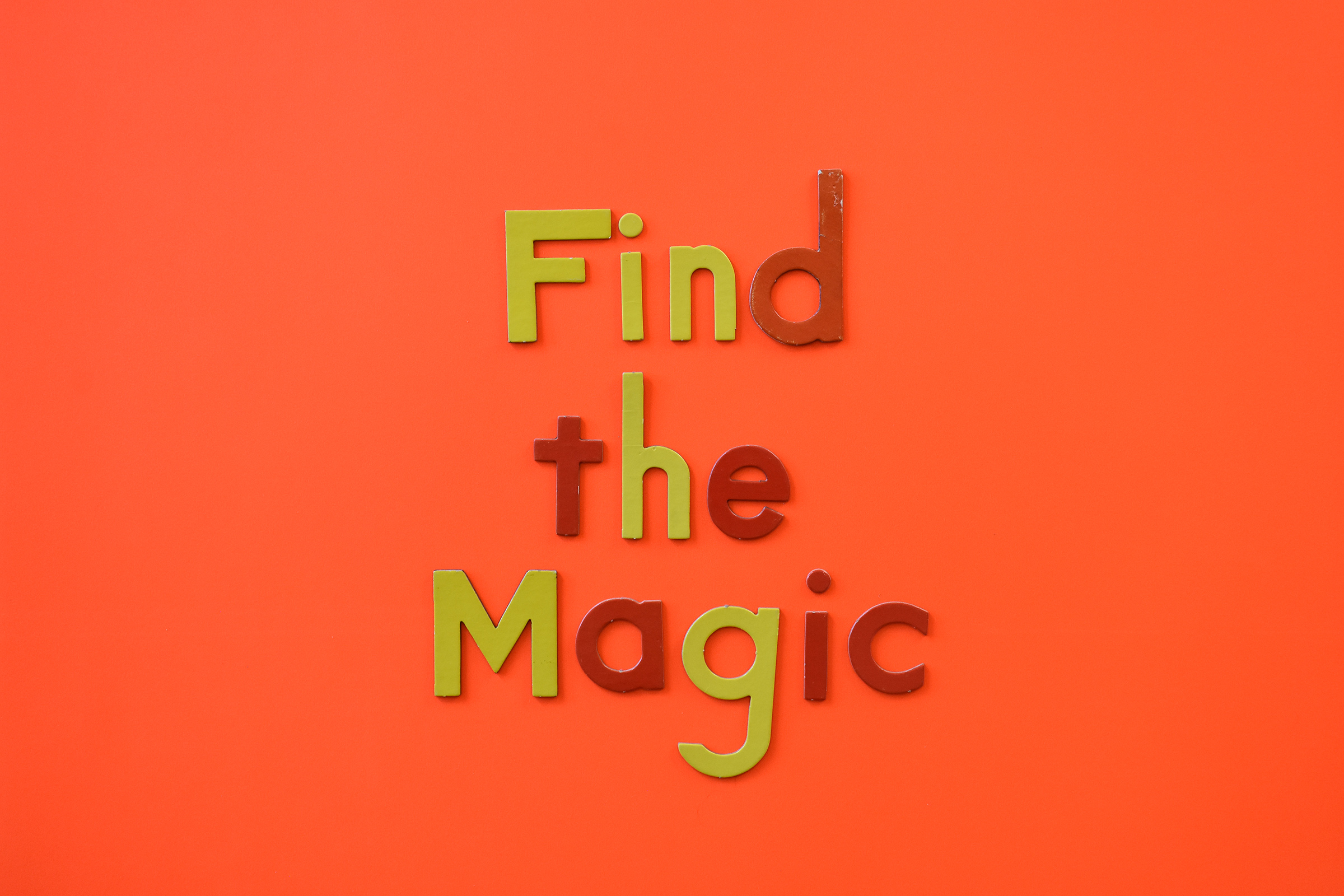Helping Services for Youth & Families
Helping Services was founded in 1973 by a group of Luther College students and faculty. It originally began as a drop-in center for youth called the “Hobbit Hole,” located on Water Street in Decorah, Iowa, and a “trouble line” for folks to call with questions and concerns, many related to drug and tobacco use.
Over the past 50 years, Helping Services has evolved to meet changing community needs. The “trouble line” became the Domestic Abuse Resource Center Hotline [(800) 383-2988]. The focus on drug use and smoking tobacco education and prevention expanded to include vaping and the opioid crisis. And the organization itself went through name changes and expansions in scope, size, and geography.
Today, Helping Services for Youth and Families is a thriving and exemplary nonprofit, with 26 full time staff members overseeing services at nine offices in Northeast Iowa.
“Your programs have really made a difference in our family.”
– Helping Services client
While some things have changed, the organization’s mission remains the same: to create healthier and safer communities in Northeast Iowa.
“Our organization is here for you,” explains Ben Krouse-Gagne, Director of Community Engagement. “If you need help or want to get involved today or 10 years down the road. You may not see many of our advocates driving around and meeting with survivors of domestic violence or you may not think anything of an adult with a youth, but that’s our youth mentoring in action. You don’t always see it, but it’s there, it’s real, and it strengthens our communities.”
Helping Services operates under four pillars of service that focus on different areas of community need: youth mentoring, prevention education, family education, and domestic abuse advocacy and resource hotline. Their service goals are straightforward: to provide tools, resources, and encouragement for community members.
“I’ve really enjoyed getting to know my mentee & it’s been great showing her new places & exploring new places together. It has also been great seeing our relationship grow.”
– Mentor, Allamakee County
“We may be helping your neighbor, your relative, you may not even know it,” adds Carson Eggland, Helping Services Executive Director. “I guess I would just say that sometimes it’s hard to see the impact. But I’d like people to know the impact is real and meaningful.”
It’s an impact Helping Services has every intention to continue far into the future.
“We want to be in your communities,” affirms Eggland. “If you see a need in your community that either is not being addressed or if you see that there may be some connection to the work we’re doing currently, don’t hesitate to reach out. I see us as a continued driving force in NE Iowa for healthier and safer families and communities.”
So in honor of 50 years of Helping Services, here are 50 Ways Helping Services Helps in Northeast Iowa:

Pillar 1: Youth Mentoring
Adult volunteers pair with youth mentees for a year full of shared experiences, fun, support, learning, and cross-generational friendship.
1. Mentoring Coordinators match caring adults with youth ages 6-16
2. Mentors spend 4+ hours per month with their mentee
3. Mentors provide a positive role model for lifetime impacts
4. Mentor for a Day (MFAD) program allows interested mentors the opportunity to mentor a youth on the waiting list for a full-time mentor
5. Bowl-a-thons in Decorah and Manchester bring the communities together and raise money for the Youth Mentoring program
6. Tasty Thursday Ice Cream Events at Sugar Bowl, Decorah encourage mentorship community
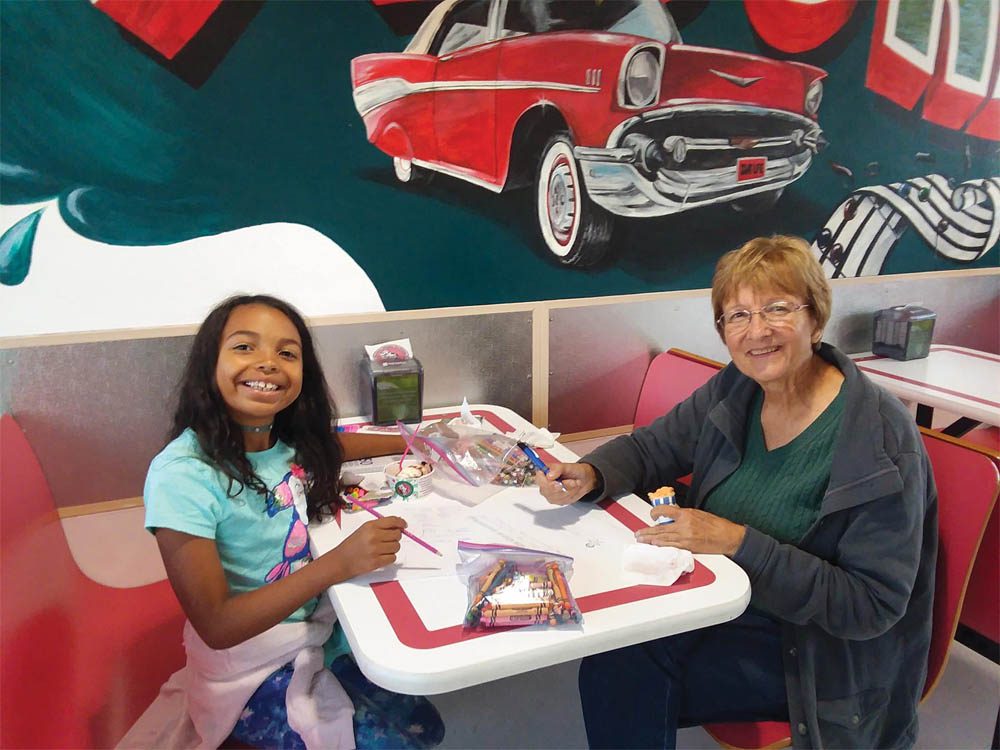
7. Mentors/Mentees look forward to the Annual Summer Picnic celebration
8. Mentoring encourages: – Skill building
9. – Relationship building
10. – Mutual learning opportunities
11. – Increased sense of belonging
“I enjoy the one-on-one time with my mentee while also being a part of a bigger group. I like being able to spend quality time & try to make a positive difference. I like that my mentee is given different experiences through the group outings.”
– Mentor, Winneshiek County
Pillar 2: Prevention Education
This includes a wide variety of services, programs, and training, with the goal of prevention, aiming to ensure that community youth are safe, drug-free, and grow into responsible adults.
12. Teaching safe medication practices
13. Teaching safe prescription drug disposal and providing community drop-off points
14. Stopping tobacco and nicotine use
15. Opioid and stimulant use education
16. Reducing alcohol and marijuana use
17. Problem gambling prevention
18. Youth and Youth Group prevention programming linked to the statewide movement, ISTEP (Iowa Students for Tobacco Education & Prevention)
19. Youth leadership: high school groups that are teen-led with experienced Helping Services staff offering guidance
20. Helping Services’ Annual Youth Leadership Day at Camp Ewalu in Strawberry Point
21. Presentations for schools and community organizations covering topics such as: drug trends, marijuana, prescription drugs, tobacco, alcohol, and gambling presented by Prevention Specialists
22. Curriculum-Based Support Group (CBSG) Program allows youth to meet in confidential, small group settings and learn essential life skills, including how to: cope with difficult family situations, resist negative peer pressure, respect others, set and achieve goals, make healthy choices, and refuse alcohol, tobacco, and other drugs
23. CBSG also teaches protective factors and major messages such as: Autonomy–“I am,” Confidence–“I can,” Interdependence–“I have,” Problem Solving–“I will,” and Sense of Purpose and Future–“I believe”
24. Education regarding the Social Host Law, which makes it a criminal offense in Iowa to allow youth to drink alcohol in your home or on your property
25. Alcohol/Beverage Server Training for local retail establishments and their employees
26. Prevention Specialist presentations for businesses to explain laws regarding sale of alcohol and tobacco products

27. Cheers Award for businesses that complete and pass the Alcohol Retailer Risk Assessment
28. Assisting companies in creating workplace policies that best define the restriction of tobacco, drugs, and alcohol in the workplace
29. Supporting and partnering with community coalitions that are made up of business owners, educators, law enforcement, and community leaders
30. These coalitions provide training, policy changes, educational experiences, and awareness campaigns
31. Coalitions also equip neighbors and youth with the knowledge to make educated decisions when it comes to substance use
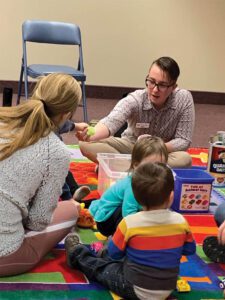
Pillar 3: Family Education
Family Educators work with young families to help them start off their parenting journeys strong by learning about developmental stages, offering support, and connecting with other families.
32. Using the Parents as Teachers™ approach, families who are pregnant and those with a child age birth to three work with a bilingual family educator to receive a myriad of support and services, including:
33. – Breastfeeding support
34. – Child passenger safety
35. – Developmental assessments
36. – Healthy home environment checklist
37. – Vision/Hearing screenings
38. – Weight Checks
39. – Resource referral and parent support
40. – Zumbini (baby Zumba) group movement classes
41. – Parent-Child playgroups
“Family Educators helped me gain confidence as a first-time mom. They answered any concerns or questions without judgment.”
– Helping Services client
Pillar 4: Domestic Abuse Advocacy and Resource Center
Highly trained Domestic Violence Advocates and volunteers listen without judgment and empower individuals and families to overcome dating and domestic violence and become survivors. All services are free and confidential and are client led.
42. Domestic Abuse Resource Center Call line [(800) 383-2988], a free and confidential 24-hours-a-day, 7-days-a-week emergency and non-emergency phone line, offers assistance related to intimate partner violence. It is staffed by highly trained volunteers who listen without judgment and provide support.
43. Domestic Abuse Resource Center online Chat line accessible via helpingservices.org/chat
44. Support offered such as: safety planning, crisis counseling, community resources, and referrals to area providers
45. Individual and group advocacy, including: legal advocacy and child and teen advocacy
46. Support group facilitation
47. Transportation needs for clients provided by volunteers
48. Gas or grocery gift cards
49. Supply pantry with diapers, wipes, laundry detergent, household cleaning supplies, toilet paper, paper towels, shampoo, conditioner, body wash, canned goods, boxed food, peanut butter, cereal, pots, pans, silverware, and stamps
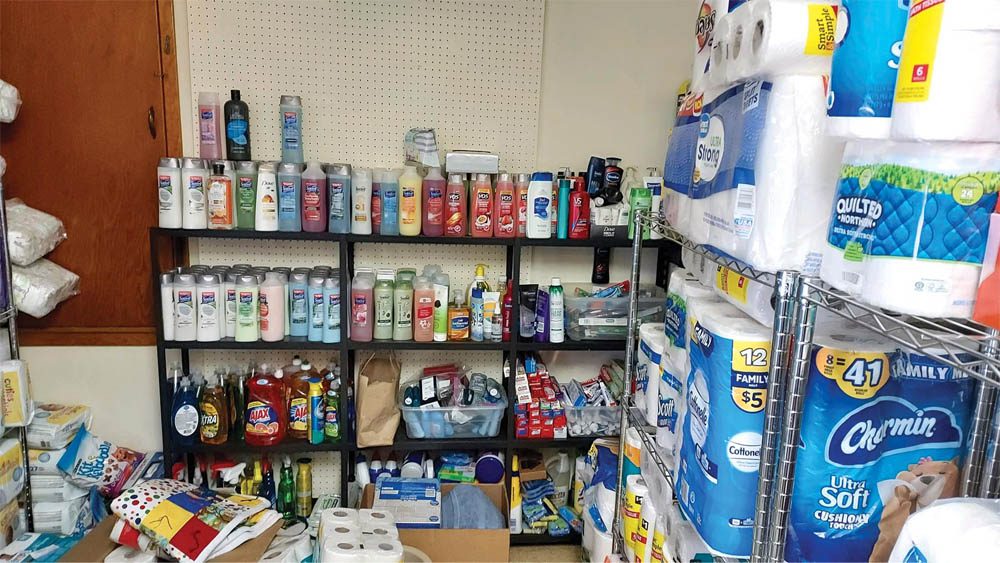
50. One final way Helping Services helps all of us in the Driftless: Holiday Lights!
“If we can bring a little bit of joy to people, especially in these dark hours, it’s nice,” said Krouse-Gagne. “And Holiday Lights also supports all of our programs!”
Bonus: 3 Ways YOU can help Helping Services:
1. Invest in Helping Services by donating your time, money, supplies, gas/grocery gift cards, and used cell phones
2. Join Helping Services for a community celebration honoring 50 years of service in NE Iowa on April 22nd!
3. Be an advocate! “We need you to be an advocate for what we’re doing,” Eggland implores. “However that fits into your life right now.” The easiest way to do so? Share this article and/or tell a friend about the many amazing services Helping Services for Youth and Families continues to provide in Northeast Iowa, and advocate for the organization as it heads into the next 50 years of service and education!
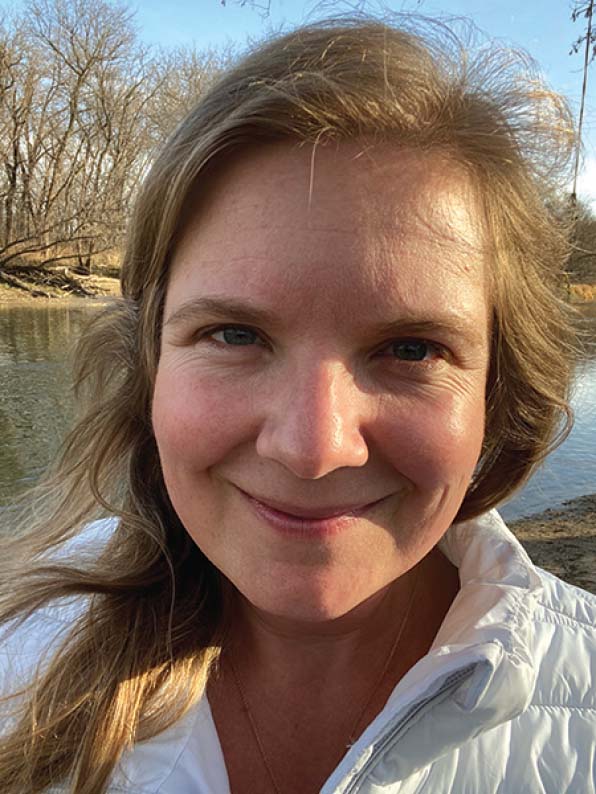
Christy Ebert Vrtis
Christy Ebert Vrtis is a teacher, writer, mom, and crime drama enthusiast who loves to curate book lists for family and friends, run (slowly) on the Trout Run Trail, and adventure around the world and throughout the Driftless with her husband and kids.




